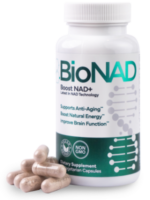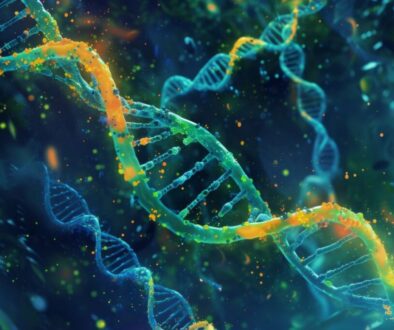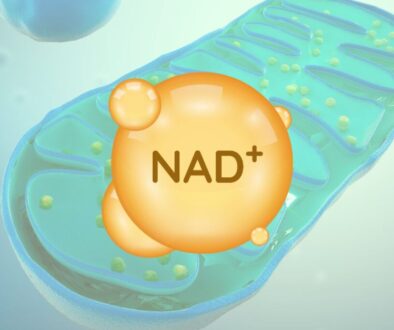What Does NAD Do? A Closer Look At Its Impact

Published July 5, 2024
Are you tired of feeling drained and worried about aging? In our quest for longevity and vitality, we often seek supplements and lifestyle changes to help us maintain our health as we age. One such compound that has garnered significant attention is Nicotinamide Adenine Dinucleotide (NAD).
What does NAD do, and should you consider supplementing it? In this article, we’ll explore the science and practical tips to boost your NAD levels.
What Is NAD?
NAD stands for Nicotinamide Adenine Dinucleotide. It’s a form of Vitamin B3 in two states: NAD+ and NADH. Generally, when NAD is mentioned, it refers to NAD+.
NAD+ is essential for cellular energy production and repair. This coenzyme is vital for various metabolic processes. It helps convert nutrients into energy and maintains DNA integrity.
Sadly, NAD+ production decreases with age. This leads to a gradual decline in cellular function. This reduction is linked to various age-related health problems. As a result, NAD+ is a crucial focus in anti-aging research and therapies.

What Does NAD Do For The Body?
NAD+ is crucial for energy transfer from food to our cells. If you’re wondering what does NAD+ do, it supports cellular function and protects DNA. It’s critical for sustaining a healthy metabolism and regulating circadian rhythms. Essentially, NAD+ converts nutrients into cellular energy, making it indispensable for survival.
So, what does NAD+ do in cellular respiration? NAD+ serves as a critical electron carrier. During glycolysis and the Krebs cycle, NAD+ accepts electrons, transforming them into NADH. This NADH carries the electrons to the electron transport chain. There, they help make ATP, the cell’s main energy currency. Without NAD+, cellular respiration would cease, leading to a severe energy shortage in cells. Thus, NAD+ is essential for maintaining the energy production that powers all cellular activities.
Impact Of Aging On NAD Production
As part of the aging process, our bodies produce less NAD. Our existing NAD stores deplete faster due to increased DNA repair demands and other cellular functions. NAD is crucial for energy metabolism and cellular health. Lower NAD levels are linked to age-related conditions. These include chronic heart diseases, diabetes, vision loss, obesity, and insulin resistance.
Lower NAD levels can impair metabolism and weaken defense mechanisms, contributing to various health issues. However, it’s unclear if reduced NAD levels directly cause these conditions or simply occur with age. Further research is needed to understand the relationship between NAD levels and age-related diseases. This could lead to interventions and therapies for healthier aging.
Ways To Boost Your NAD Levels
Elevating your NAD levels can significantly improve your energy, metabolism, and overall health. Here are some effective strategies to help you achieve this goal.
1. Supplements
The most direct way to increase NAD levels is through supplementation. NAD+ supplements are generally safe in doses up to 300 mg, with mild side effects like nausea and sweating. These supplements boost your body’s NAD levels, making them popular for enhancing cellular health and longevity. Always see a healthcare provider before starting any new supplement.

2. Exercise
Regular physical activity increases energy demand, prompting the body to produce more NAD+. Exercise, whether cardio, strength training, or a brisk walk, can significantly boost NAD levels. Higher NAD levels may enhance exercise performance, increasing capacity, running distance, and lean muscle production. More exercise leads to higher NAD levels, creating a positive feedback loop and improving exercise outcomes.
3. Sun Protection
While vitamin D from sunlight is essential, excessive UV exposure damages skin cells and depletes NAD levels. Applying sunscreen, donning protective clothing, and avoiding the sun during peak hours can help protect your skin. Balancing sun exposure for vitamin D benefits while protecting your skin is crucial. This helps maintain NAD production and supports overall cellular health.
4. Regulate Your Circadian Rhythm
A consistent sleep schedule helps regulate NAD production. Get the morning sun to set your internal clock, avoid blue light at night, and keep your sleeping environment dark and cool. A well-regulated circadian rhythm improves sleep quality. It supports natural NAD production. This enhances overall health and wellness.
5. Dietary Changes
A diet that includes foods rich in Vitamin B, such as fermented foods, avocados, and peanuts, can boost NAD levels naturally. This supports its biosynthesis pathways. Intermittent fasting and low-calorie diets also increase NAD production. These methods mimic the body’s stress response, promoting longevity and cellular health.
6. Reduce Alcohol Intake
Alcohol consumption lowers NAD levels due to its inflammatory and liver-damaging effects. Reducing alcohol helps maintain higher NAD levels, which is crucial for metabolism and cellular repair. Reducing alcohol intake improves overall health. It lessens the risk of chronic ailments and also supports liver function.
Integrate these strategies into your daily routine. This will help boost and maintain healthy NAD levels, improving cellular function and overall well-being.

Embrace Youthful Vitality With The Right Anti Aging Supplements
Certain supplements may help slow aging and promote a long, healthy life. These anti aging supplements include vitamins, minerals, and other essential nutrients. Your body might lack these nutrients. However, maintaining a nutritious diet, regular exercise, and reducing stress is imperative. These habits support health and longevity. Start implementing these changes today and invest in your future well-being! Remember, small, constant steps can lead to significant improvements over time.

Try BioNAD Now & Experience The Boost!
NAD+ (Nicotinamide Adenine Dinucleotide) is a crucial coenzyme found in every cell of your body, playing a vital role in cellular energy production and metabolism. BioNAD supplements aim to elevate your NAD+ levels, providing numerous health benefits.

About The Author
Meet Corinne Grace, a nurse with a passion for writing. Her expertise lies in health and wellness topics, where she blends academic knowledge with engaging story telling.

This Content Has Been Reviewed For Factual Accuracy
This content has undergone thorough fact-checking by our team of experts. Learn more about the editorial standard for our website here.




